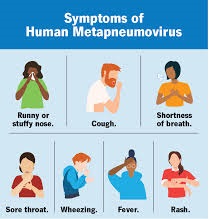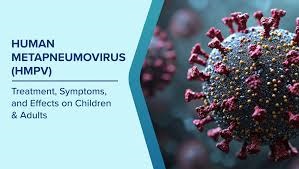HMPV Case LIVE: Several state governments have heightened their surveillance amid rising cases of respiratory illnesses, especially those due to Human Metapneumovirus (HMPV). Reports of HMPV outbreak in China have also raised concern for another health emergency. In India, at least eight HMPV cases have been detected. On Thursday, an 80-year-old man tested positive for the infection in Ahmedabad city of Gujarat.Health Minister JP Naddaearlier said that HMPV is not a new virus and asked people not to worry about it. He also urged the public to take precautions to avoid getting infected with viral infections, which are on the rise during the winter season.HMPV cases in India tally

At least nine cases of HMPV infection have been reported from India since January 7. Initially, HMPV cases were reported in Karnataka and Tamil Nadu. On the same day, Gujarat confirmed another case, followed by two additional cases reported in Nagpur, Maharashtra. On Wednesday, another HMPV case was confirmed in Mumbai. One more case was reported from Ahmedadad on Thursday. HMPV infection is not new in India. Several HMPV cases were reported in December as well. Earlier, the former World Health Organization (WHO) chief scientist Soumya Swaminathan, told NDTV that keeping a tally of ‘HMPV cases in India’ is meaningless.
HMPV Case LIVE: What are severe symptoms of HMPV?
In case it gets serious, HMPV infection can cause severe bronchiolitis and pneumonia in children, and its symptoms are indistinguishable from those caused by human respiratory syncytial virus.
Complications associated with HMPV include pneumonia, bronchiolitis, worsened respiratory conditions like asthma or chronic obstructive pulmonary disease (COPD) and bacterial pneumonia.
HMPV Case LIVE: WHO issues official statement, ‘similar to the common cold, it is nothing new’
HMPV Case LIVE: India logged over 200 cases till December
HMPV is not a new virus and more than 200 cases were registered from Indiabetween January and December last year, senior government scientists said.The virus has been reported every year in India, and there is no unusual increase in cases in the country. Further, the country’s Integrated Disease Surveillance Program (IDSP) is also not showing any surge in respiratory diseases, they said on the condition of anonymity.The virus, which was first isolated in 2001, is just like any other respiratory virus that spreads through air, entering the body via nose, mouth, or eyes after one comes in close contact with an infected person. In India, the virus was first detected in 2003, a livemint report said
HMPV Case LIVE: What are the do’s and dont’s for avoiding HMPV
Prevention is essential for avoiding HMPV virus. People should take general precautions that we use against all respiratory infections. Check here:
- If someone has a cough and cold, they should avoid contact with others to prevent the spread of infection.Use a separate hanky or towel for coughing or sneezing.
- Take medicine required for cold or fever as prescribed by a doctor.Wash your hands frequently with soap and water for at least 20-30 seconds.Avoid touching your face with unwashed hands.Clean commonly used surfaces like doorknobs and toys.Stay indoors if you are sick.
- If you and your children show cold-like symptoms, practice good respiratory hygiene. Cover your mouth and nose while coughing and sneezing.Avoid sharing utensils and other personal items with others.Avoid direct contact, such as shaking hands or hugging.Eat a balanced diet, get appropriate sleep, and stay hydrated by drinking plenty of water.Avoid going to crowded places.
- Eat fresh fruits and vegetables.Exercise regularly to boost immunity.

